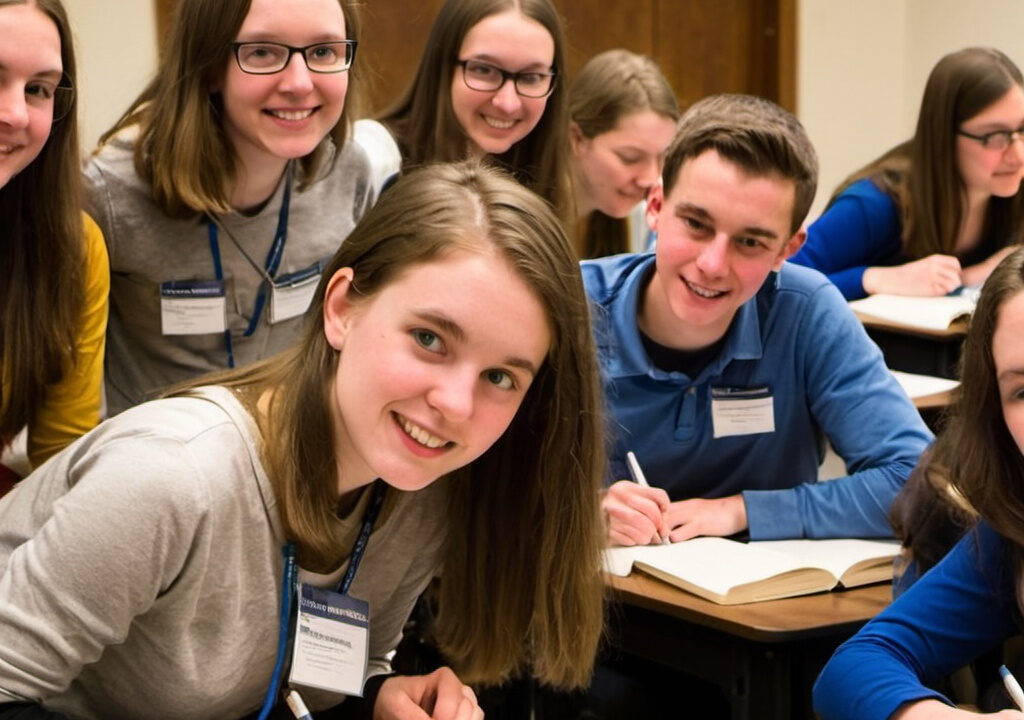The Fulbright Scholarship Program is one of the most prestigious international exchange programs in the world. Established in 1946, it was designed to foster mutual understanding between the United States and other countries through educational and cultural exchange. Funded by the U.S. government, Fulbright Scholarships offer exceptional opportunities for students, scholars, teachers, and professionals to study, teach, or conduct research in the U.S. or abroad.
What Are Fulbright Scholarships?
Fulbright Scholarships are merit-based awards offered to individuals from over 160 countries, enabling them to pursue academic and professional development. The program supports a wide range of activities, including graduate studies, research, and teaching. The scholarships are available at various levels and disciplines, ensuring accessibility for individuals with diverse academic and professional interests.
Objectives of the Fulbright Program
- Fostering Mutual Understanding: Strengthening international relations through educational and cultural exchanges.
- Promoting Academic Excellence: Encouraging research and innovation in various disciplines.
- Supporting Diversity: Providing opportunities to individuals from underrepresented and underserved communities.
- Building Global Networks: Establishing connections between individuals and institutions across borders.
Types of Fulbright Programs
1. Fulbright Foreign Student Program
- Designed for graduate students, young professionals, and artists from other countries.
- Eligibility: Bachelor’s degree or equivalent and proficiency in English.
- Covers: Tuition, airfare, living stipend, and health insurance.
- Focus Areas: Broad range of disciplines, including STEM, humanities, social sciences, and the arts.
2. Fulbright Visiting Scholar Program
- Targeted at experienced professionals and researchers for academic exchange.
- Eligibility: PhD or equivalent and a strong academic/research profile.
- Covers: Research grants, travel expenses, and living allowances.
- Focus Areas: Advanced research projects in specific fields.
3. Fulbright U.S. Student Program
- Allows recent U.S. graduates, artists, and young professionals to study or teach abroad.
- Eligibility: U.S. citizenship and a bachelor’s degree by the start of the grant.
- Covers: Living expenses, travel, and project-related costs.
- Focus Areas: Research, study, and English teaching assistantships.
4. Fulbright Specialist Program
- Connects U.S. professionals with institutions abroad for short-term projects.
- Eligibility: Demonstrated expertise in a specific field.
- Covers: Travel, accommodations, and daily allowance.
- Focus Areas: Capacity building and knowledge exchange in diverse sectors.
5. Fulbright Teacher Exchange Programs
- Facilitates teaching and cultural exchange for educators at primary and secondary levels.
- Eligibility: Professional teaching experience and relevant qualifications.
- Covers: Travel expenses, living costs, and program fees.
- Focus Areas: Enhancing teaching practices and promoting intercultural learning.
If you need more explanation or more information, you can book a consultation and speak to Happy Face
Eligibility Criteria for Fulbright Scholarships
Eligibility for Fulbright Scholarships varies depending on the specific program and country. However, general requirements include:
- Academic Qualifications: A bachelor’s degree or equivalent for most programs; advanced degrees may be required for research-oriented scholarships.
- Language Proficiency: Demonstrated proficiency in English, typically through standardized tests like TOEFL or IELTS.
- Professional Experience: Some programs require prior professional or teaching experience.
- Strong Personal Statement: A compelling statement of purpose highlighting academic and professional goals.
- Commitment to Home Country: Many scholarships prioritize candidates who intend to return and contribute to their home communities.
Benefits of Fulbright Scholarships
- Financial Support: Covers tuition, travel expenses, living allowances, and health insurance.
- Access to Top Institutions: Provides opportunities to study or conduct research at leading universities in the U.S. and other countries.
- Cultural Exchange: Encourages intercultural understanding through community engagement and networking.
- Professional Growth: Enhances career prospects and global recognition in the recipient’s field.
- Research Opportunities: Offers access to state-of-the-art facilities and mentorship from world-class academics.
Application Process
1. Research Program Options
- Identify the Fulbright program that aligns with your academic and professional goals.
- Check the specific requirements and deadlines for your country.
2. Prepare Required Documents
- Academic transcripts and certificates.
- Standardized test scores (TOEFL, GRE, etc.) if required.
- Statement of Purpose (SOP) and research proposal (if applicable).
- Letters of recommendation.
- CV or resume highlighting academic and professional achievements.
3. Submit Online Application
- Complete the application through the Fulbright website or designated local office.
- Ensure all required documents are uploaded and forms are accurately filled out.
4. Attend Interviews
- Shortlisted candidates are invited for interviews as part of the selection process.
- Be prepared to discuss your goals, project, and motivation for applying.
5. Notification of Results
- Successful applicants are notified and provided with guidance on the next steps, including visa application and travel arrangements.
If you need more explanation or more information, you can book a consultation and speak to Happy Face
Challenges and Tips for Applying
1. High Competition
- Fulbright Scholarships are highly competitive, with thousands of applicants annually.
- Tip: Submit a unique and compelling application that showcases your potential and passion.
2. Detailed Documentation
- Preparing the required documents can be time-consuming and complex.
- Tip: Start early to ensure all materials are complete and well-prepared.
3. Language Barriers
- For non-native English speakers, meeting language proficiency requirements can be challenging.
- Tip: Take language tests well in advance and consider preparatory courses if needed.
4. Adapting to a New Culture
- Studying or researching in a foreign country can involve cultural adjustments.
- Tip: Engage in pre-departure orientations and connect with alumni for insights.
If you need more explanation or more information, you can book a consultation and speak to Happy Face
Impact of the Fulbright Program
The Fulbright Program has had a profound global impact, with alumni contributing significantly to their fields and communities. Recipients often become leaders in academia, business, government, and non-profit sectors, leveraging their experiences to address global challenges and foster international collaboration. Notable alumni include Nobel Laureates, Pulitzer Prize winners, and influential policymakers, underscoring the program’s role in shaping global thought leaders.








